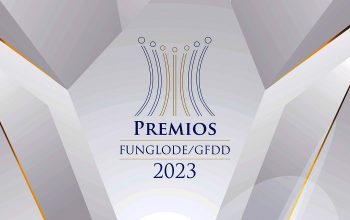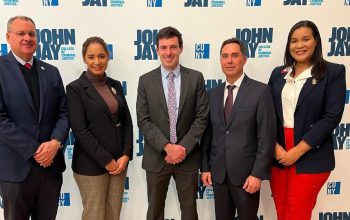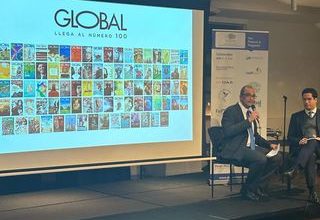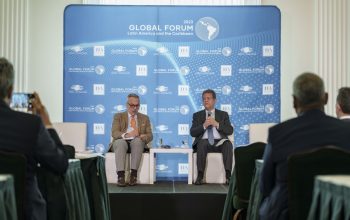news
Mexican Ambassador Discusses the Country’s Critical Role in UN Processes, Climate Change Issues, and Financing for Development
May 14, 2013
The May edition of Global Foundation’s Roundtable series had the pleasure to host a visit from Luis Alfonso de Alba, Permanent Representative of Mexico to the United Nations. Ambassador de Alba, in his distinguished diplomatic career since 1983, has accomplished serving as Mexican diplomat, Ambassador, UN Representative, President of the Human Rights Council, Chief Negotiator for the Climate Change Summit among many other
achievements. His impeccable knowledge about the UN processes, climate change, Mexican and world politics stood at the core of the interesting meeting. In particular, de Alba discussed UN reform and Mexico’s stance on it, issues about financing for sustainable development, the outcome of the Climate Change summit in Cancun in 2010 and the current political situation in Mexico.
Central to the conversation was the theme of recent developments in UN reform procedures and to what extent Mexico is engaged. “Since the establishment of the organization,” asserted Mr. Ambassador, “Mexico has taken the lead in seeking to find a balance between the political, social and economic agendas.” For that reason, the
country has been advocating to turn ECOSOC into the main body of the United Nations which, over time, has become a successful endeavor. Today, the Economic and Social Council plays the major role in balancing the agendas having added, as of high priority, sustainable development to them.
Here, His Excellency made an important remark that as the UN has a universal power like no other intergovernmental organization, for the complete achievement of its goals for the good of
all planet and mankind, there is a need to involve new actors in it. Those include parliamentarians, local authorities, representatives of the private sector and civil society. It is anticipated that their contribution in financing for sustainable development will be one step forward in the future accomplishment of the post-2015 development agenda.
Continuing the discussion path about financing for sustainable development, Mr. de Alba contended that;
“we have been rather unsuccessful in implementing the Monterrey Consensus and in the new reality today, with at least 40-60 new emerging developing economies, we have to rethink the implementation strategy.” The Monterrey Consensus needs to be given a new shape today, with burgeoning countries, like the Dominican Republic, stepping in and participating more in financing for the political, social, economic and environmental agendas.
In regard to issues
pertaining to the environment, the international community has been trying to come to a uniform agreement, for which the Climate Change Summit in Cancun in 2010 laid the groundwork, and which was signed in Durban the following year. The outcome of the Cancun Summit was manifold. First, it came out with a number of actions to cut carbon emissions which, however, was only accepted by 67 countries. Second, it was agreed to provide countries with support in order to implement the agreement in
the future. Next, it was concurred, in the agreement, if one was to be signed, to balance the interests of all countries. Finally, the summit participants asserted that the responsibilities, even if common, had to be differentiated amongst countries, so that in the end everyone bore the same commitment. From the perspective of the current environmental situation in the world, the role of the Cancun meeting cannot be underestimated, as it put the climate agenda back on the discussion
track.
Mexican Ambassador Discusses the Country’s Critical Role in UN Processes, Climate Change Issues, and Financing for Development
Toward the end of this incredibly dynamic and informative session, the distinguished guest shared his views on the current political situation in Mexico. Even though the two critical reforms in the energy and
fiscal sectors have been pushed back, stated Mr. de Alba, the government under the newly elected president Enrique Peña Nieto has already made some successes. In particular, signing the collaboration pact between the three national parties will get different political actors to work together for the common good. This, in turn, will entice hopes for changing stereotypes about Mexico outside the country and will bring innovation and freshment to the homeland policy making of today.
About the GFDD Global Roundtable
The Global Roundtable is a monthly series formulated and produced by GFDD. The objective of the program is to promote dialogue on issues of international concern. Each broadcast features discussion with a prominent international figure. The series seeks to inform GFDD viewership in the United States, the Dominican Republic and around the world of innovative initiatives pertaining to the Millennium
Development Goals and other sustainable development targets being realized in each of the countries being spot-lighted. The Global Roundtable is yet another channel by which GFDD contributes to enhancing visibility and understanding of the work of the United Nations System.
About Ambassador De Alba
A distinguished career diplomat since 1983, Ambassador de Alba is currently the Permanent Representative of Mexico to
the United Nations, a position he assumed in September 2011. He previously served as the Special Representative at the Climate Change summit in Cancun in 2010. For his role of Chief Negotiator at this high-level meeting, Ambassador de Alba was nominated for Chatham House Prize in 2011. Between March 2004 and July 2009, he served as the Permanent Representative of Mexico to the United Nations in Geneva, where he was designated as the first President of the Human Rights Council, a position he
held from June 2006 until June 2007. Prior to that, Ambassador de Alba served as the Deputy Permanent Representative to the United Nations in New York, Deputy Permanent Representative to the Organization of American States and Director-General for the United Nations, as well as other relevant positions at the Ministry of Foreign Affairs.






